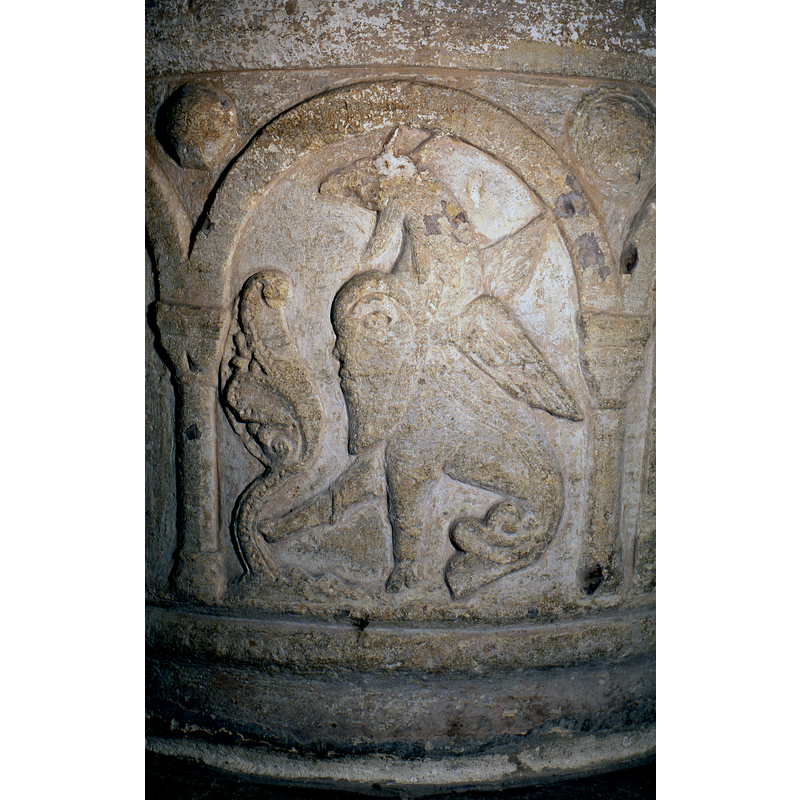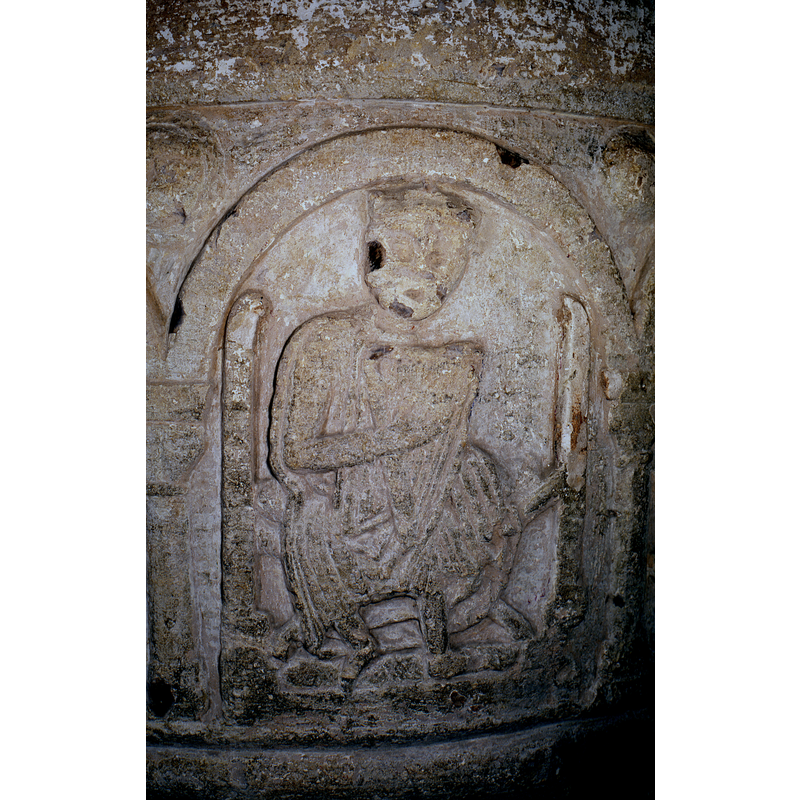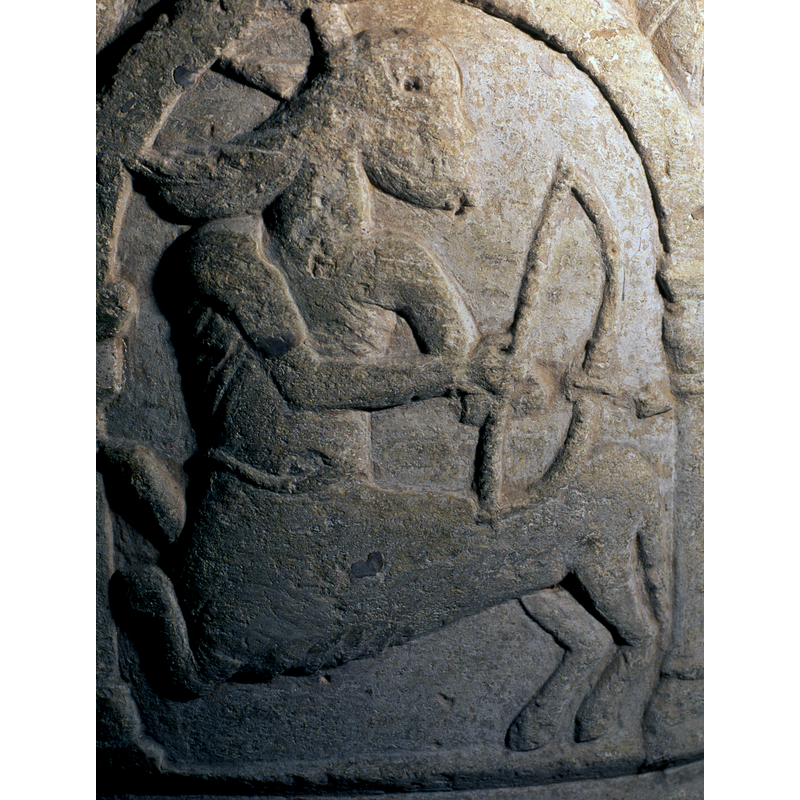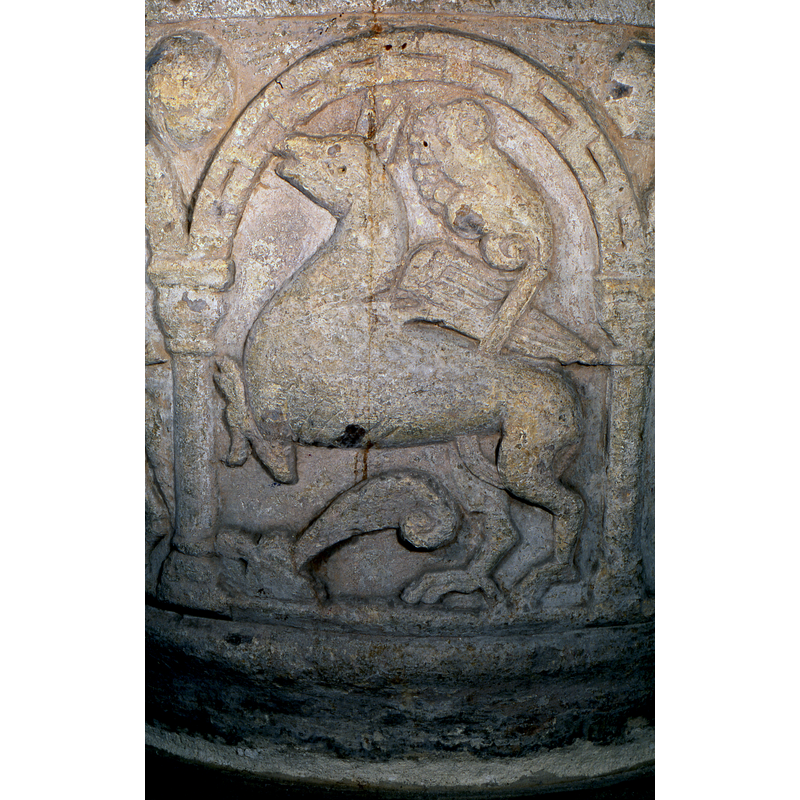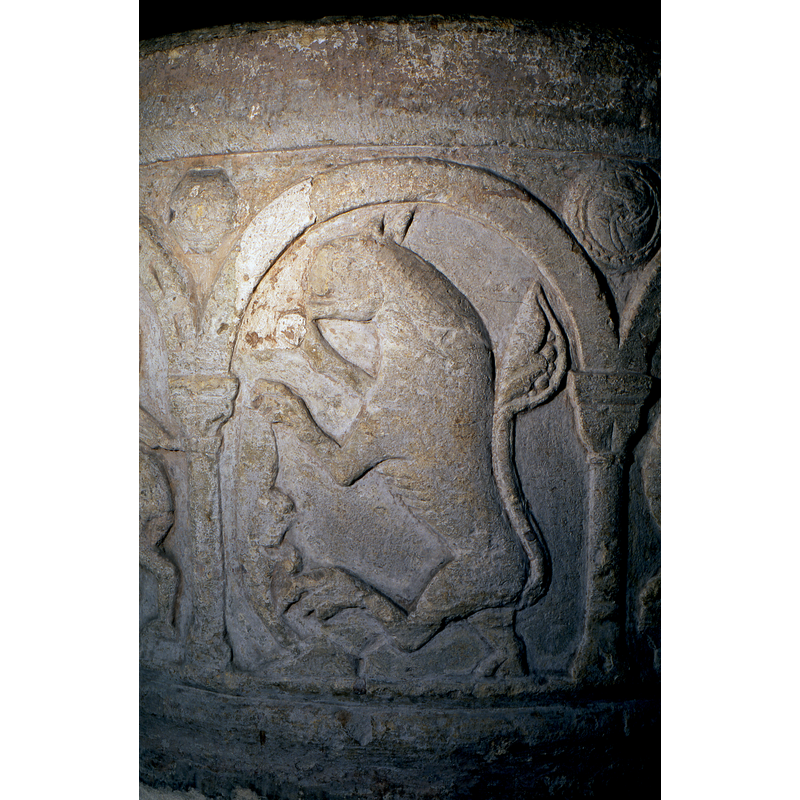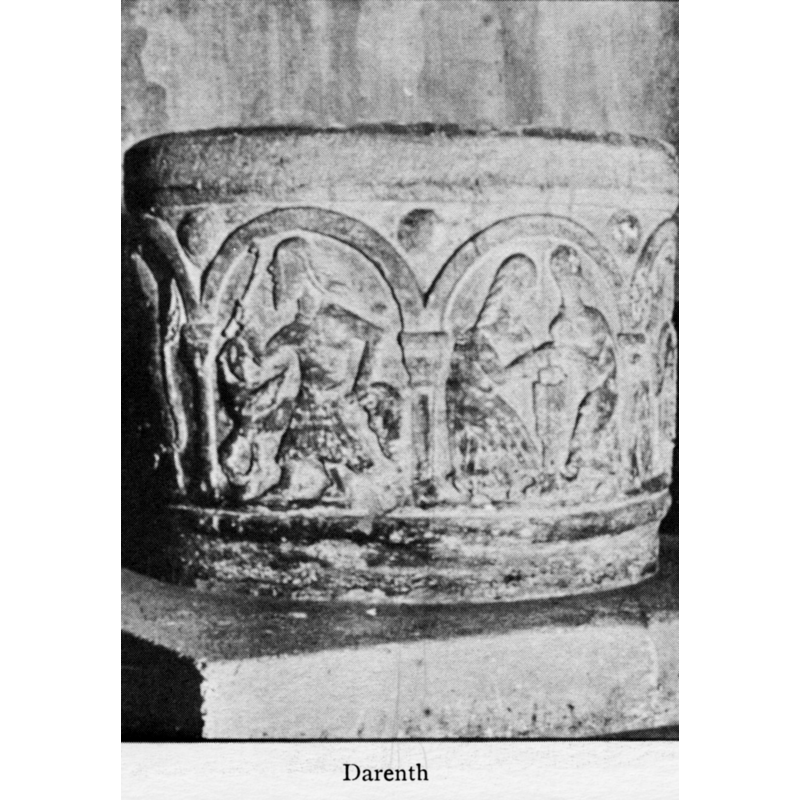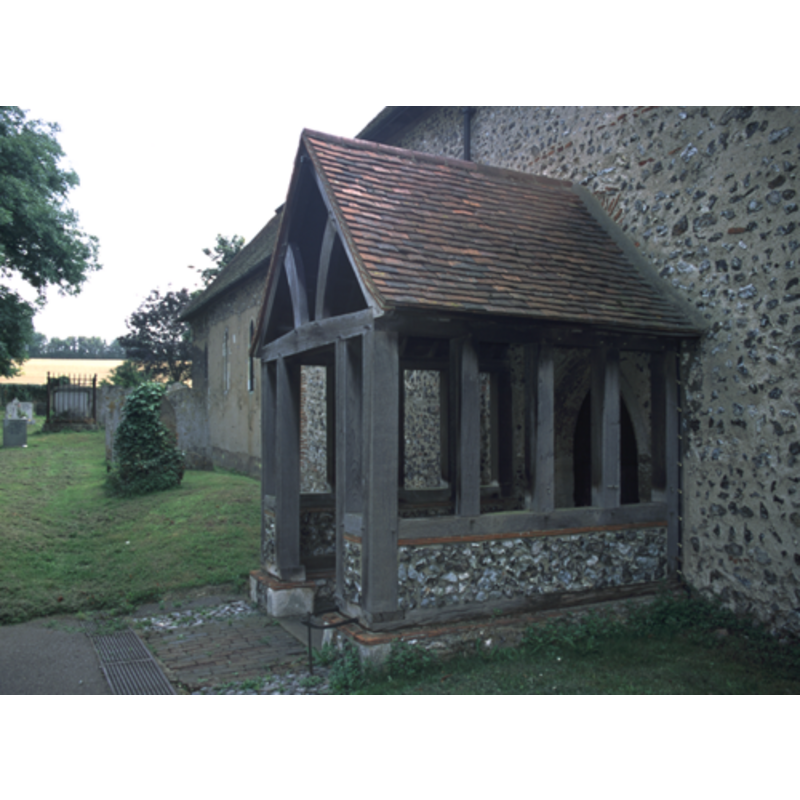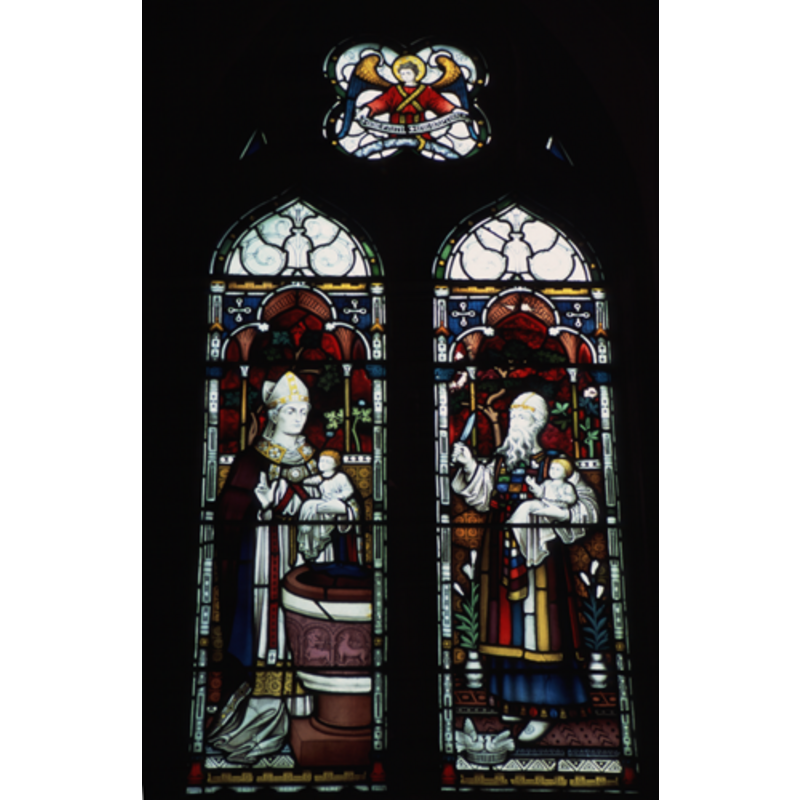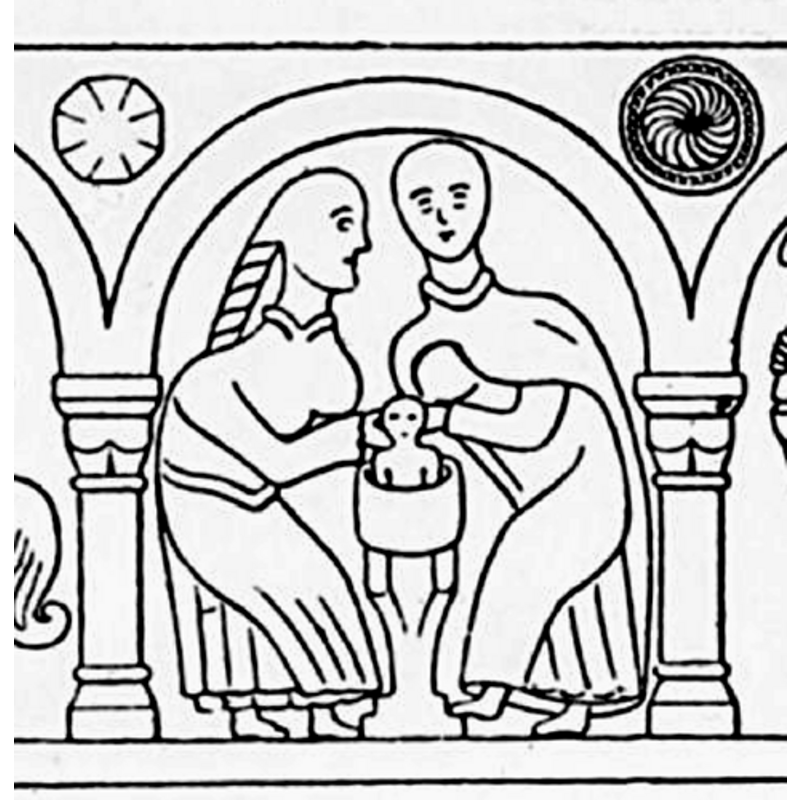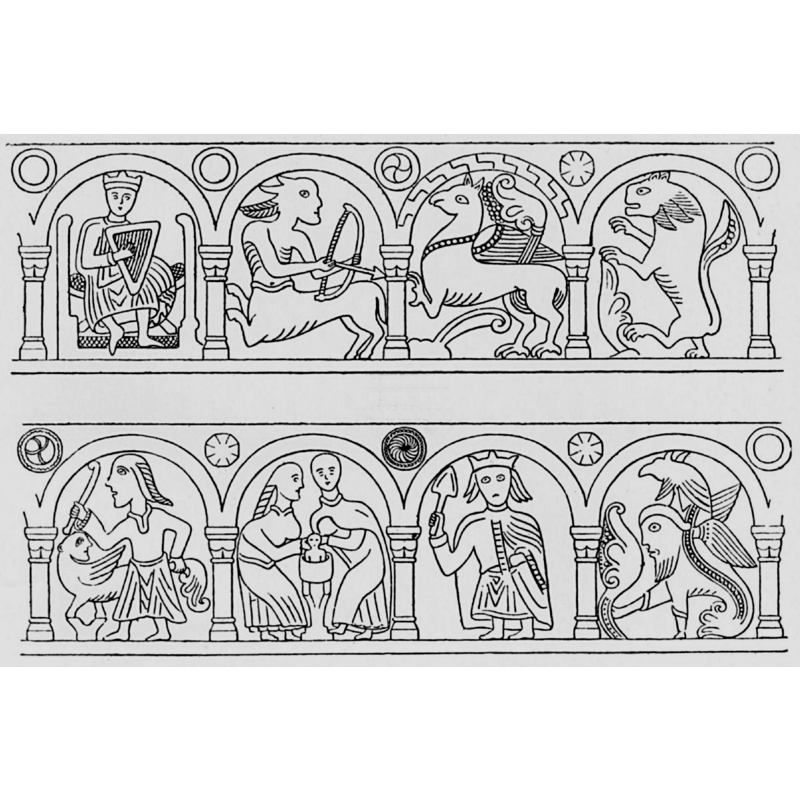Darenth / Darent / Tarent
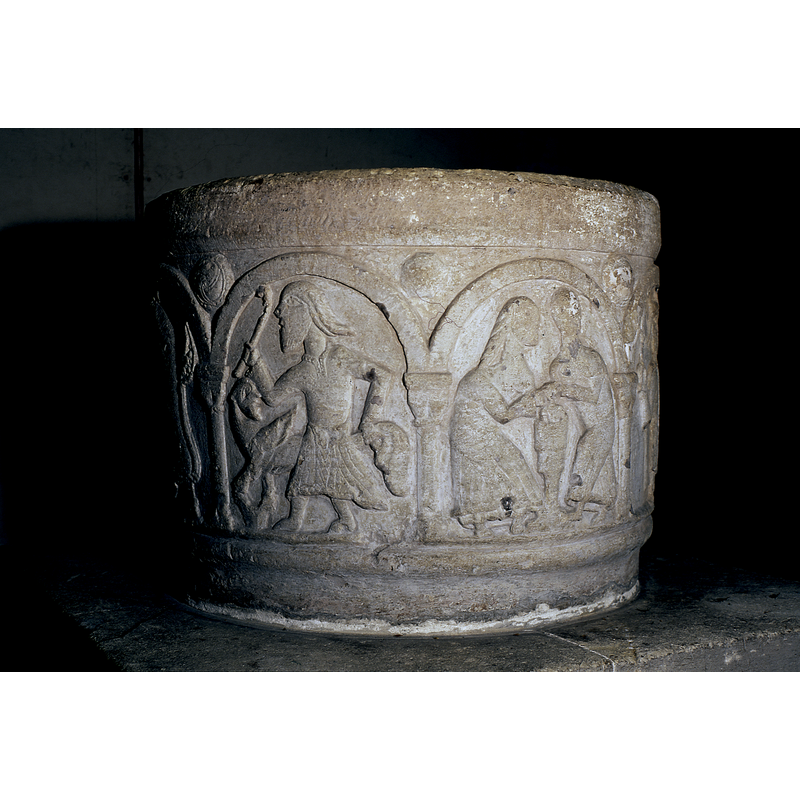
Image copyright © Baptisteria Sacra Index, 2023
CC-BY-NC-ND-4.0
Results: 16 records
B01: Old Testament - the time of Samson - the book of Judges - Samson - fighting a lion - with a club
Scene Description: unclear identification; some have claimed this is St. Margaret of Antioch and her dragon, but the figure appears to be male and has a beard
Copyright Statement: Image copyright © Baptisteria Sacra Index, 2023
Image Source: digital photograph taken 26 July 2000 by BSI
Copyright Instructions: CC-BY-NC-ND-4.0
B02: sacrament - baptism
B03: human figure - male - crowned - with spear
B04: animal - fabulous animal or monster - 2 - fighting?
B05: Old Testament - story of David - with harp
B06: animal - fabulous animal or monster - centaur? - with bow and arrow - Sagittarius? - Minotaur?
B07: animal - fabulous animal or monster - pegasus or hippogryph?
B08: animal - mammal - lion - rampant
view of font
design element - motifs - ball
design element - architectural - arcade - round arches - 8
view of basin
view of church exterior - portal
view of church interior - window
view of basin - detail
INFORMATION
Font ID: 00144DAR
Object Type: Baptismal Font1
Date Visited: 2000-07-26
Font Date: ca. 1140?
Font Century and Period/Style: 12th century (mid?), Norman
Church / Chapel Name: Parish Church of St. Margaret of Antioch
Font Location in Church: Inside the church, in the W end of the nave
Church Patron Saint(s): St. Margaret of Antioch [aka Margaret the Virgin, Marina]
Church Address: Darenth Hill, Darenth, Dartford DA2 7QY, UK -- Tel.: +44 1322 227153
Site Location: Kent, South East, England, United Kingdom
Directions to Site: Located off (E) the A275, SE of the M25-A2 crossroads, 6-7 km NNE of Farningham (SE of London on the A20)
Ecclesiastic Region: Diocese of Rochester
Historical Region: Hundred of Axton
Font Notes:
Click to view
There are three entries for Darenth [variant spelling] in the Domesday survey [https://opendomesday.org/place/TQ5671/darenth/] [accessed 2 March 2020] none of which mentions church or cleric in it. Baptismal font noted [as 'Darent'] in Gough (1792): it is decorated with "rude arches and reliefs, and is of large capacity". Noted and illustrated in Upcott (1818). Noted in Batty (1848) as "highly emblemized". Lewis' Dictionary of 1848 reports a font "which has attracted much attention". In Hussey (1852) with reference to the font at Bloxham. Described in Glynne (1877). Ruprich-Robert (1884-) has also as "Darent" and shows a cylindrical base not shown in Bond [cf. infra]. The Ecclesiologist (XXVIII, 1867: 85-89) reproduces a document by Mr. W. Burges, architect, addressed to the Incumbent, Rev. R.P. Coates, on the planned changes for the upcoming renovation, among which is the advice: "The font should be placed on a square stone base, with sufficient space for the priest to stand when administering the Sacrament." Romilly Allen's Notes on Early Christian Symbolism (1884) identifies a baptismal scene on this font. Described in Cox & Harvey (1907) as a "fine piece of early Norman sculpture" [NB: C&H report a description of this font in the Gentleman's Magazine in 1827 and, again, in 1837]. Described and illustrated in Bond (1908) as a Norman font. Described in Tyrrell-Green (1928) as being ornamented with signs of the Zodiac. Collins (1943) is very categorical about "The rite of baptism. The scene here carved is capable of not other interpretation"; for the man and animal, he rejects St. Michael, St. George or Samson, and suggests "the eternal conflict between good and evil"; he does not have any helpful suggestions to make any narrative sense of the other motifs. Noted in Newman (1980) with date ca. 1140 [after Zarnecki]: "Round the bowl under an arcade of eight arches is a characteristically incoherent variety of subjects; a bearded man grappling with a dragon; a rampant lion; a gryphon; Saggitarius; King David; a fantastic beast; a crowned man holding a flabellum." Noted in Wood (1999). Described and illustrated in Drake (2002). On-site notes: the cylindrical basin has an arcade of eight arches, left-to-right: 1)male figure hold's lion's tail with his left hand, raises a club on his right (Samson?); 2) scene of child baptism (or first bath?); 3)crowned male with short spear; 4)pair of fabulous beasts, one on the other; 5)crowned sitting figure with harp (king David?); 6)bull-headed (?) centaur looks back with bow and arrow (Sagittarius?); 7)winged quadruped (Pegasus / hyppogryph); 8)rampant lion. There are large round ball-like motifs in the spandrels between the arches.
COORDINATES
UTM: 31U 308327 5700027
Latitude & Longitude (Decimal): 51.419, 0.2433
Latitude & Longitude (DMS): 51° 25′ 8.4″ N, 0° 14′ 35.88″ E
MEDIUM AND MEASUREMENTS
Material: stone, limestone
Number of Pieces: one
Font Shape: cylindrical, unmounted
Basin Interior Shape: round
Basin Exterior Shape: round
Drainage System: centre hole in basin
Drainage Notes: lead-lining inside the basin well
Rim Thickness: 8.5-10 cm
Diameter (inside rim): 73 cm
Diameter (includes rim): 90-91 cm
Basin Depth: 49 cm
Basin Total Height: 69 cm
Font Height (less Plinth): 69 cm
Font Height (with Plinth): 114 cm
Notes on Measurements: BSI on-site
REFERENCES
- Allen, J. Romilly, "Notes on Early Christian Symbolism", N.S., VI, Proceedings of the Society of Antiquaries of Scotland, 1884, pp. 380-464; p. 424fn1, 436
- Batty, Robert Eaton, Some particulars connected with the history of baptismal fonts: being a paper read at the quarterly general meeting of the Architectural and Archaeological Society for the County of Buckingham, London: F. & J. Rivington, 1848, p. 24
- Betjeman, John, An American's Guide to English Parish Churches (including the Isle of Man), New York: McDowell, Obolensky, 1958, p. 211
- Bond, Francis, Fonts and Font Covers, London: Waterstone, 1985 c1908, p. 37, 143, 149, 151, 155, 167, 173, 183, and ill. on p. 186
- Collins, Arthur H., "The iconography of Darenth font", 56 (1943), Archaeologia Cantiana, 1943, pp. 6-10; p. 6-10
- Cox, John Charles, English Church Furniture, New York: E.P. Dutton & Co., 1907, p. 203, 204
- Davies, J.G., The Architectural Setting of Baptism, London: Barrie and Rockliff, 1962, p. 76
- Glynne, Steven Richard, Sir, Notes on the churches of Kent, London: John Murray, 1877, p. 307
- Gomme, George Laurence, Folklore as an historical science, London: Methuen, 1908, ill. on p. 324
- Gough, Richard, "Description of the old font in the Church of East Meon, Hampshire, 1789: with some observations on fonts", X, Archaeologia, 1792, pp. 183-209; p. 189 and fn
- Hussey, Arthur, Notes on the churches in the counties of Kent, Sussex, and Surrey mentioned in Domesday Book and those of more recent date [...], London: John Russell Smith, 1852, [no. 92]
- Kroesen, Justin E.A., The Interior of the medieval village church = Het middeleeuwse Dorpskerkinterieur, Leuven: Uitgeverij Peeters, 2004, p. 328
- Lewis, Samuel, A Topographical Dictionary of England, Comprising the Several Counties, Cities, Boroughs, Corporate and Market Towns, Parishes, Chapelries, and Townships, and the Islands of Guernsy, Jersey, and Man, with Historical and Statistical Descriptions [...], London: S. Lewis, 1831, [www.british-history.ac.uk/report.asp?compid=50913] [accessed 26 January 2007]
- Newman, John, North East and East Kent, Harmondsworth: Penguin Books, 1976, p. 46
- Newman, John, West Kent and the Weald, Harmondsworth: Penguin Books, 1980, p. 46, 254
- Ruprich-Robert, V., Architecture normande aux XIe et XIIe siècles en Normandie et en Angleterre, Paris: Libraririe des imprimeries réunies, 1884-1889, pl. CLXIX, fig. 4
- Tyrrell-Green, E., Baptismal Fonts Classified and Illustrated, London: Society for Promoting Christian Knowledge: The Macmillan Co., 1928, p. 69
- Upcott, William, A bibliographical account of the principal works relating to English topography, London: Printed by Richard and Arthur Taylor, 1818, p. 410 and pl. xi / [http://books.google.com/books?id=gLwuAAAAMAAJ&pg=PA228&lpg=PA228&dq=upcott+1818&source=web&ots=lJwT-K00zU&sig=oVT6Kc6G03vqjYf4Synuk_Aek9w#PPP15,M1] [accessed 23 September 2007]
- Wood, Rita, "Real People in English Romanesque Sculpture", Summer 1999, 11, Medieval Life: The Magazine of the Middle Ages, 1999, pp. [8]-15; p. 12
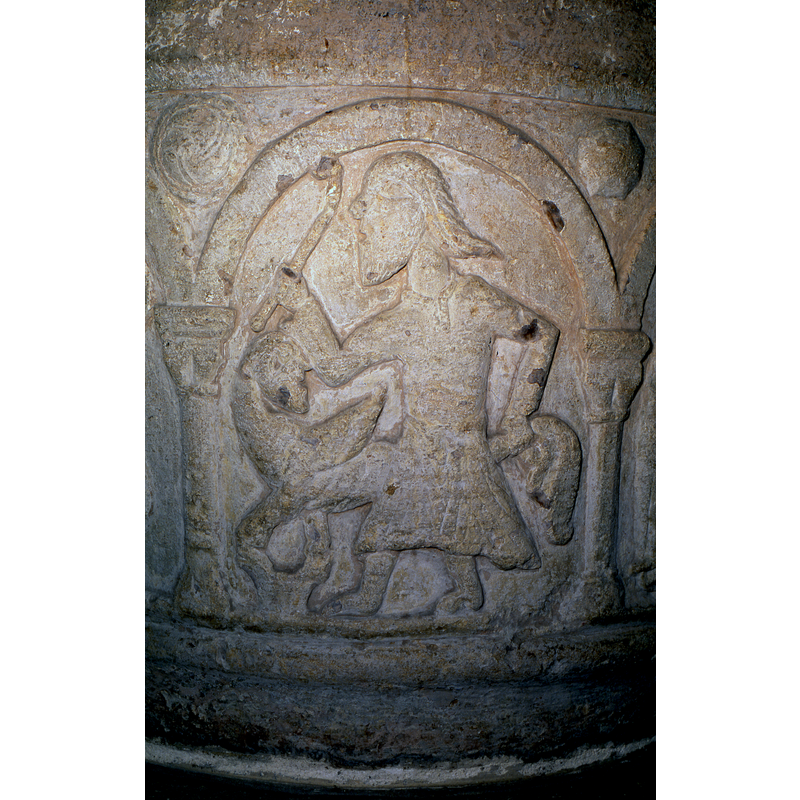
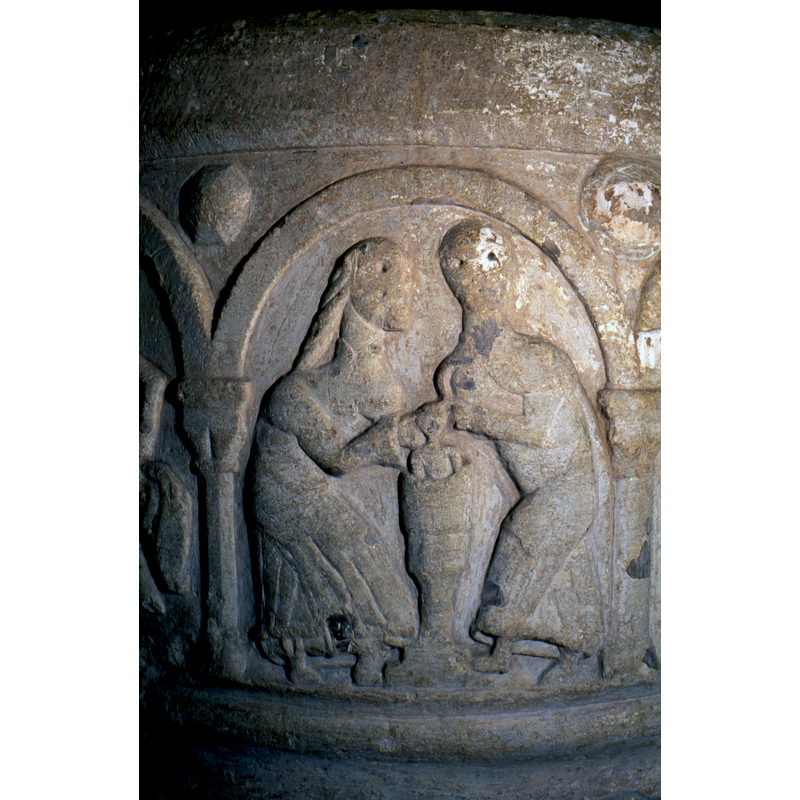
![or a flabellum [fan]? -- Photographed in July 2000](/static-50478a99ec6f36a15d6234548c59f63da52304e5/compressed/DAR0006914_compressed.png)
